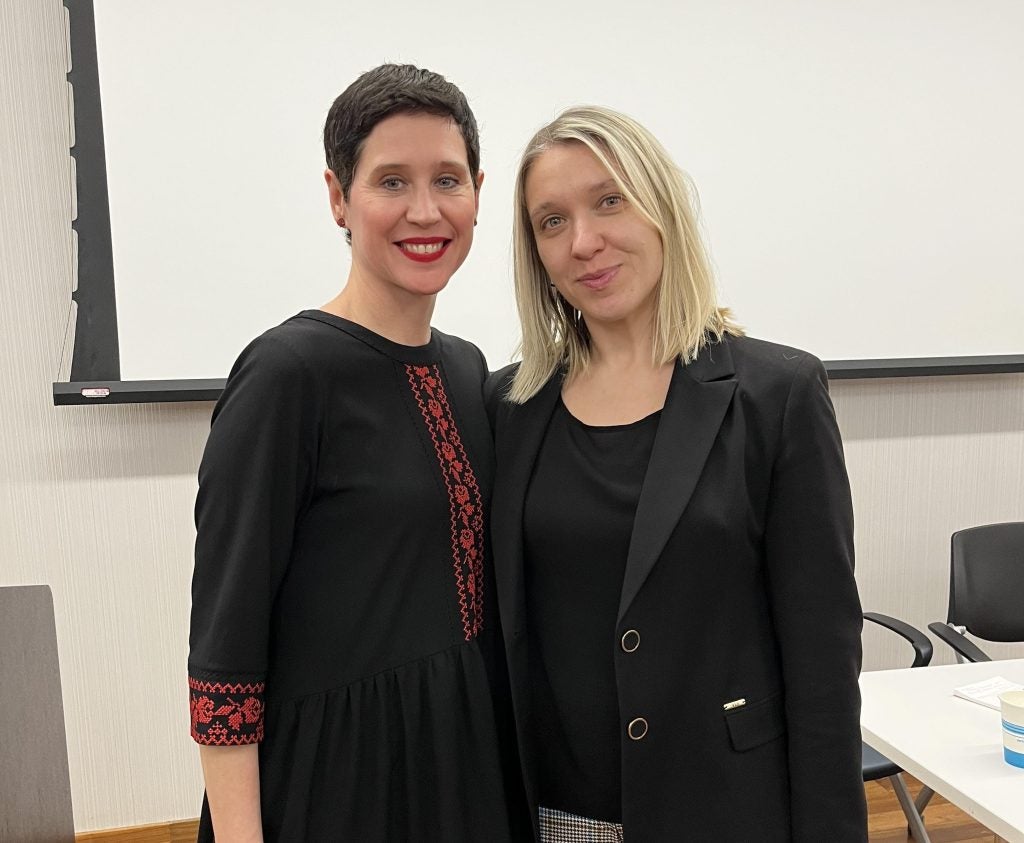
On February 4th, Dr. Anca Diana Axinia delivered a lecture exploring the history of women’s participation in the Romanian (Fascist) Legionary Movement from its foundation in 1927 until the Bucharest pogrom in January 1941. The discussion began with an examination of women’s involvement in the Legionary Movement, also known as the Iron Guard, a far-right, antisemitic group active in interwar Romania. It then provided insight into the complex relationship between gender and violence within the Legion. In the fascist, virulent nationalist, and antisemitic ideology, these women were alternately and paradoxically portrayed as mothers and warriors, as wives and “sisters in arms.” The language of violence was reframed in gendered terms, employing “feminine” symbols, analogies, and metaphors. However, in practice, women’s engagement with violence varied significantly, encompassing different levels of participation. The lecture concluded by addressing the latest findings on the intersections of gender, the portrayal of violence, and transitional justice, with a focus on the Bucharest pogrom.
The event was moderated by Dr. Diana Dumitru, Visiting Ion Raţiu Chair of Romanian Studies at the Center for Eurasian, Russian, and East European Studies (CERES) at Georgetown University.
About the Speakers:
Dr. Anca Diana Axinia received her PhD in history from the European University Institute in Florence in 2022. Her dissertation, Women and Politics in the Romanian Legionary Movement, is the first systematic study of women’s participation and gender relations within the Romanian Legionary Movement. Her research interests include fascist studies, gender studies, feminist theory, and Eastern European history. She recently completed a research fellowship at the New Europe College in Bucharest, where she examined the intersections of fascism, gender, and the Holocaust in the Romanian context. As of January 2025, she has been a research fellow at the U.S. Holocaust Memorial Museum in Washington, D.C.
Dr. Diana Dumitru is the Visiting Ion Raţiu Chair of Romanian Studies at the Center for Eurasian, Russian, and East European Studies (CERES) at Georgetown University. Her field of research includes the Holocaust in Eastern Europe, nationalism, and Jews under late Stalinism. Dr. Dumitru has held multiple fellowships, including a Woodrow Wilson Center Fellowship (USA), a Gerda Henkel Stiftung Fellowship (Germany), a Simone Wiesenthal Institute Visiting Researcher Fellowship (Austria), and the Rosenzweig Family Fellowship for research at the U.S. Holocaust Memorial Museum (USA). She has authored over forty academic articles and two books. Her second book, The State, Antisemitism and Collaboration in the Holocaust: The Borderlands of Romania and the Soviet Union, was published by Cambridge University Press in 2016. Together with Chad Bryant and Kateřina Čapková, she is currently working on a book titled The Trial that Shook the World: The Slánský Process and the Dynamics of Czechoslovak Communism. She is also writing a separate book focused on Jewish life in the Soviet Union after World War II. Dr. Dumitru is an editorial board member of the scholarly journals Holocaust and Genocide Studies, East European Jewish Affairs, and Journal of Genocide Research. She is a member of the Advisory Board of the EU-funded European Holocaust Research Infrastructure.
This event was sponsored by Georgetown University’s Center for Eurasian, Russian, and East European Studies (CERES) and the Ion Raţiu Chair of Romanian Studies.
